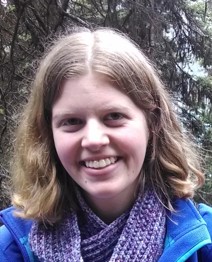

Kristen Gardner is an assistant professor of computer science. She completed her undergraduate study in computer science at Amherst College and holds a master’s and doctoral degrees from Carnegie Mellon.
Q: How did you begin studying your subject and what made you decide to pursue it?
A: My first computer science experience was at Amherst where I wrote my first lines of code in Computer Science 111, and from that point on I was hooked. I have always been interested in math and really enjoy logic and a systematic way of thinking. Computer science is an applied way of thinking that allows me to combine these different ways of thinking.
Q: For those of us who don’t know what exactly computer science is, how would you describe it?
A: Computer science is all about problem solving. More specifically, it is about finding systematic ways to solve problems. Everything we do is about taking problems we encounter — breaking them into smaller problems we can solve and then putting it all back together.
Q: What is your favorite part of computer science?
A: My favorite part is the balance between math and applied problems. I like doing math, but I also like to see where the problems are coming from. I am a theoretician, which means I do a lot of math in my work, so I like how computer science is the intersection between theoretical and practical and allows me to do the math I love while also solving real problems.
Q: Why do you think it is important for students today to learn computer science?
A: I think it is important because I think you would be hard-pressed to find any career path that doesn’t involve computing in some way. Developing some degree of computer literacy is becoming increasingly important, and every possible industry you can imagine has computer science people working in it.
Q: What made you decide to come to Amherst?
A: When I was doing my undergraduate study here at Amherst, I decided around my sophomore or junior year that I wanted to come back someday. I feel really comfortable here and think it is a great place to be a student, so it made a lot of sense for me to come back as a professor.
Q: How is Amherst different from other places you have been?
A: The biggest difference is that it is much smaller. One of the main things that separates Amherst is the level of interaction professors have with students. As a professor, I get to know my students individually, and the students get to know one another as well. Carnegie Mellon was a great place for me to go to graduate school because it offered me a lot of resources and opportunities, but I think being at a smaller school like Amherst for undergraduate study is great.
Q: Can you tell me about the classes you are teaching this semester and other classes you teach at Amherst?
A: This semester I am teaching two classes: Intro [to Computer Science] and Algorithms. With Intro, there is no prior knowledge required, and it is a lot of fun for me to get to introduce the students to computer science and see how they develop throughout the semester. My other class this semester, Algorithms, is an upper-level theory course for computer science majors. This class talks about when we can and can’t commute problems efficiently. In the spring I will be teaching Intro again, and I will also be teaching a course called Data Structures, which serves as a bridge between Intro and the rest of the courses in the major. This class starts introducing students to the way we represent data in computers.
Q: What do you hope students will take away from your courses?
A: It depends on the class, but for Intro I hope that students get a sense for what the discipline is about and the type of thinking that computer science requires. I also hope students gain an appreciation for programming. For my upper-level classes, I hope students continue to appreciate the discipline and the thinking it requires, and I also hope that they further their understanding about what is and is not commutable, and then develop tools to be able to solve those problems that are commutable.
Q: What kind of research do you do and how did you become interested?
A: My research is about performance modeling and queuing theory, and I first got started with it when I was working on my Ph.D. In simple terms, my research is about people waiting in lines. I am interested in how quickly we can get jobs in the computer system to finish running. Once a job arrives to the system, it has to wait in line just like a person in a supermarket. I am trying to figure out how to schedule jobs in a computer in the most efficient way in order to make things go faster. In other words, it is all about how people, or in my case computer systems, decide what line to stand in at the supermarket or the computer.
Q: How do you hope to contribute to the Amherst community?
A: First off, the student demand for computer science classes is high, so I want to make sure we meet that demand. I am also personally interested in expanding participation in computer science, and I would like to work to try and bring traditionally underrepresented groups into our department.
Q: What do you like to do in your spare time?
A: I like to knit, bake and do crossword puzzles.
Q: Lastly, how is it coming back to Amherst as a professor after having recently been a student?
A: I think the biggest thing is that the campus looks different than when I was here as a student. I am jealous of the new Greenway dorms!